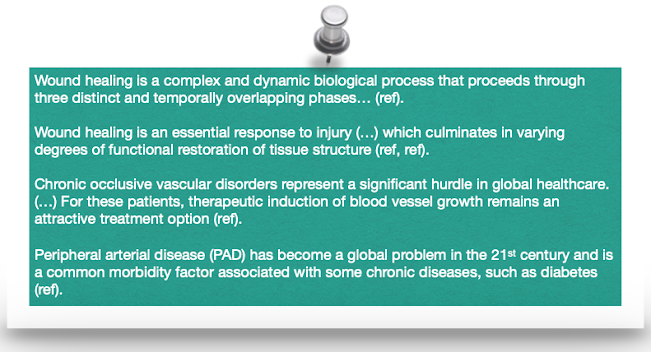Why this, why now, why me
When the reviewers say “it’s unclear which is the relevance this study may have"...😖
When I first started doing proper research, everybody in the lab I worked in wanted to cure cancer. At least, that’s what all their papers said… Why?
Set the scene
Cancer is one of the main causes of death worldwide, accounting for nearly 10 million deaths in 2020, or nearly one in six deaths (WHO).
👆 This is what is called setting the scene.
A claim comprised by one or two sentences, often backed up by one or more citations, that highlights the relevance and timeliness of the research. 🕕
It should be within the 1st paragraph of your introduction, and accurately reflect what the paper is about.
Here are some examples of this I wrote myself:
But not all research is obviously relevant.
Background and research gap
In the broad field of study that you research, the contribution you can make with the findings in your study will add to the mounting evidence.
Science is iterative. It builds on what was discovered before. It is important to place your study in the context of what has already been done, to identify what is still missing. 👀
If the 1st paragraph described the field of research, the 2nd paragraph tells the specific story of what is known, and what remains to be discovered.
Objectives
This is like prompting for ChatGPT. 😊
At this point, your readers should be hooked and ready to immerse themselves in the story you are about to tell them.💡So, don’t forget to introduce the study you'll be describing.💡
Adverbs and linking words are your best friends. You will describe how you conducted your research in the next section. So, start your 3rd paragraph with an expression such as:
Here we show…
Therefore, our main goal was…
We tested the hypothesis that…
Using…, we assessed whether…





Comments
Post a Comment